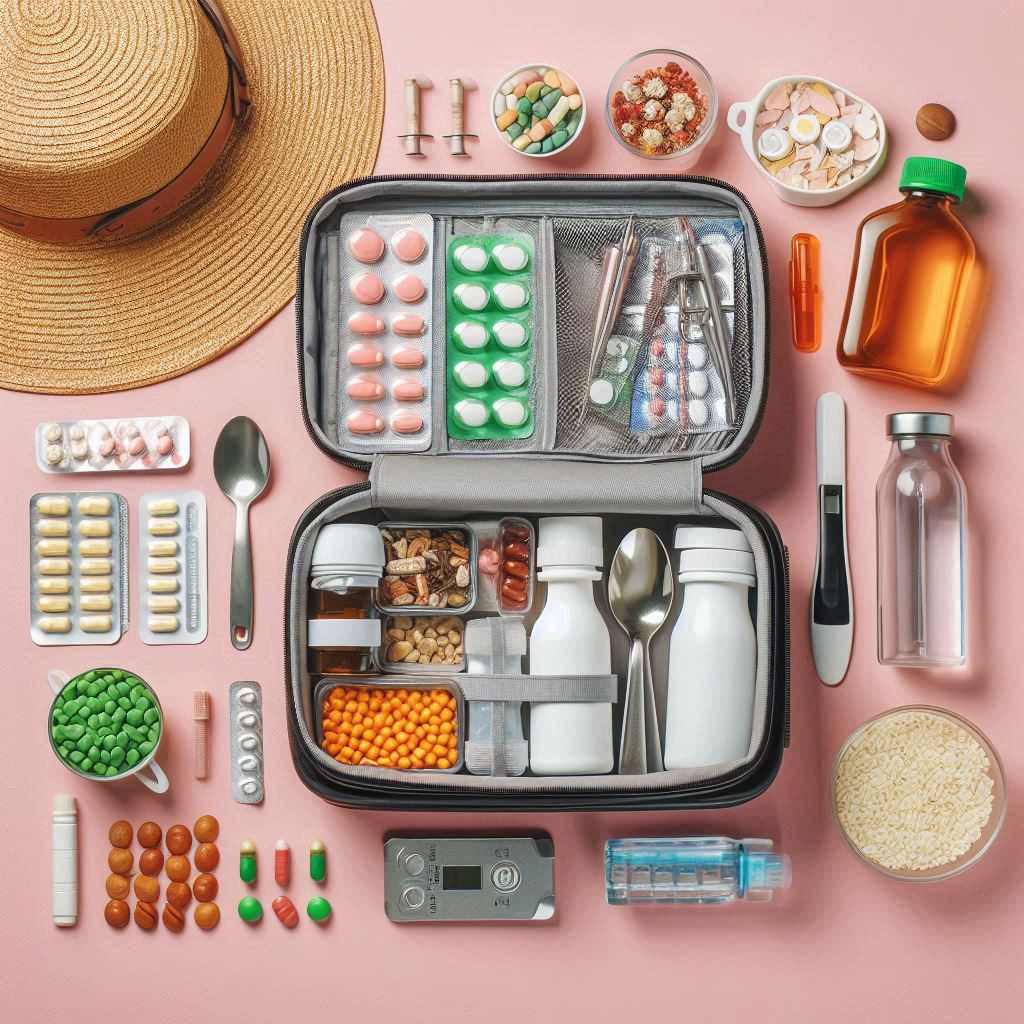
Traveling can be an amazing adventure, feeding your soul new experiences and awesome memories. But admit it—digestive discomfort can be a real killjoy. The good news? With smart planning, you can protect your gut and enjoy all the fun without the fuss.
Digestive issues are something almost every traveler encounters at some point. The reasons range from the basic, like the weird sleep schedule and diet changes, to the more serious, like stress or unfamiliar bacteria in food and water. When you’re dealing with any kind of tummy trouble, enjoying the sights becomes way tougher.
The core idea is to be proactive. Arm yourself with tips and tricks to keep your digestive system humming smoothly, regardless of where you roam. Understanding why this happens helps you appreciate the importance of these preventive measures. It’s not just about dealing with problems when they arise; it’s about stopping them before they start.
This guide gives practical advice on handling everything from airplane bloat to traveler’s diarrhea. Whether you’re a seasoned globetrotter or planning your first big trip, these tips will be your go-to for gut health on the go.
Understanding How Travel Disrupts Digestive Health
Airplane Bloat
Travel tends to shake up your routine, and your gut first feels it. Boarding a plane? The cabin pressure at high altitudes often causes gas to expand in your intestines, creating that uncomfortable, bloated feeling many people know as ‘airplane bloat’. Lack of movement and dehydration from the dry cabin air can worsen things.
Even when you’re on solid ground, your gut goes through its own adventure. Different foods disrupt meal timings, and a stray from your regular diet can mess with your digestive balance. Your gut bacteria, accustomed to your home diet, might struggle to adapt to new and exotic cuisines.
Stress Is Another Hidden Culprit.
From anxiety about catching flights to the mental strain of navigating unknown places, stress can wreak havoc on your digestive system. This stress-induced gut disturbance can slow down or speed up your digestion, making you uneasy.
Flying across time zones messes with your body clock, and your digestive system doesn’t get a free pass. Jet lag can throw your eating and sleeping schedules out of whack, causing constipation or irregular bowel movements.
Understanding these disruptions prepares you to counteract their effects. Awareness is the first step to a happier, healthier gut, no matter where your journey takes you.
Proven Tips to Prevent Airplane Bloat and Constipation
Air travel is notorious for causing the bloated, uncomfortable feeling known as ‘airplane belly.’ High cabin pressure makes gas expand in your intestines, while lack of movement and dry cabin air add to the issue. But don’t worry—there are ways to keep the bloat at bay.
First, skip the carbonated drinks and salty snacks before and during your flight. They might be tempting, but they can make bloating worse. Instead, opt for still water and light, easily digestible foods like fruits or yogurt. Staying hydrated with regular sips of water is key. Bring a reusable water bottle and fill it up after passing through security.
Next –Even small movements can help keep your digestive system active. Try some simple stretches at your seat or walk up and down the aisle whenever possible. Staying active before and after your flight can also help prevent constipation.
Another smart move is to establish a bathroom routine. Especially during long-haul flights, allowing time for a bathroom break in the morning can make a big difference. Drinking a warm beverage like herbal tea or hot water with lemon right after waking up stimulates bowel movements. Regularity is your gut’s best friend.
Finally, balance is key. Once you land, don’t overload on heavy, greasy foods. Stick with what’s familiar and easy on your stomach until your body adjusts to the new environment. Pack high-fiber snacks like nuts or dried fruits to help your system keep moving smoothly.
Taking these proactive steps can prevent airplane bloat and vacation constipation from dampening your travels.
Food and Water Safety to Avoid Traveler’s Diarrhea
Traveler’s diarrhea is common, especially when visiting places with different food and water safety standards. Introducing harmful bacteria or parasites into your system through contaminated food or water can lead to uncomfortable symptoms like diarrhea, cramps, and general discomfort. An estimated 30-70% of travelers experience diarrhea, while constipation affects up to 48% of individuals during travel. Constipation is also a common issue due to changes in diet and routine.
Effective Strategies to Keep Your Gut Happy While Traveling

Now that we’ve identified some of the main culprits behind travel-related digestive issues let’s explore practical strategies to keep your gut health in check while you move.
1. Mind your Hand Hygiene.
One of the first lines of defense is practicing hand hygiene. Always carry hand sanitizer and use it before eating or drinking, particularly when you’re on the move and can’t easily wash your hands. Clean hands can make a world of difference in preventing stomach woes.
2. Prioritizing Hydration with Safe Water Sources
Hydration is a game-changer that keeps your digestion on track during your travels. Dehydration can lead to constipation, exacerbate bloating, and make you more susceptible to traveler’s diarrhea. Drink plenty of water, but make sure it’s from a safe source. If tap water is questionable, buy bottled water or buy a filtered water bottle to reuse. Remember to watch out for ice, and say no if unsure of its origin.
Practical Tip: Pack a reusable water bottle with a built-in filter. This allows you to fill up safely wherever you go, reducing the need to buy bottled water and helping you stay hydrated.
3. Incorporate High-Fiber Foods into Your Diet
Fiber is your friend. While indulging in convenient, low-fiber foods like pastries and fast food is tempting, they can contribute to constipation. Stick to high-fiber foods like fruits, vegetables, whole grains, and legumes. Pack some high-fiber snacks like nuts, seeds, or dried fruits to munch on the go. Bringing a container of chia seeds or flaxseeds can be handy, too; sprinkle them on a salad or yogurt to boost your fiber intake.
4. Staying Active Matters
This is another vital part of maintaining gut health. Even with a jam-packed itinerary, finding time to move around is crucial. A brisk walk around the airport during layovers, stretching exercises in your hotel room, or exploring your destination on foot can all keep your digestive system humming. Physical activity also helps reduce stress, which is a known gut disruptor.
Practical Tip: Set a reminder on your phone to stand up and move around every hour, especially during long flights or car rides. Simple stretches or a quick walk can make a big difference.
5. Pack Your Probiotics And Other Over-the-counter Medications

If you’re prone to digestive issues, consider taking probiotics. These can help maintain the balance of good bacteria in your gut, making it more resilient to the changes and stresses of travel. You can find probiotics or foods like yogurt and fermented products in supplement form. Just make sure the options you choose are travel-friendly. You might also consider packing over-the-counter meds for diarrhea, indigestion, and constipation—to be on the safe side. For instance, anti-diarrhea.
Practical Tip: Create a small travel kit with these essentials and keep it in your carry-on bag for easy access during your trip.
To ensure your travel kit is well-stocked with the best products for managing digestive discomfort, check out our detailed reviews of Unbloat vs. Zenwise: Which is the Ultimate Bloat Bluster? We’ve compared top options to help you choose the best supplements and remedies to include in your travel kit. Equip yourself with the right tools to ensure a smooth, bloat-free journey!
6. Eating Habits Matters
Being smart about eating habits is also crucial. Try to eat smaller, more frequent meals instead of heavy, large ones. This can prevent overloading your digestive system and reduce the chances of bloating and discomfort. Slower eating can give your body time to digest and absorb nutrients properly.
7. Avoid Overeating
Once you land, don’t overload on heavy, greasy foods. Stick with what’s familiar and easy on your stomach until your body adjusts to the new environment. Pack high-fiber snacks like nuts or dried fruits to help your system keep moving smoothly.
If you’re adventurous with food, introduce new items slowly to see how your digestive system reacts. This cautious approach gives your gut bacteria time to adjust, reducing the risk of stomach upset.
In Conclusion
Traveling can be thrilling, but digestive issues like bloating, constipation, and diarrhea can damper your adventures. This post offers practical tips to keep your gut health in check while exploring new places. Discover how to prevent airplane bloat, stay hydrated, choose high-fiber foods, and maintain a healthy routine. With some planning, you can enjoy your travels worry-free and keep digestive discomfort at bay.
